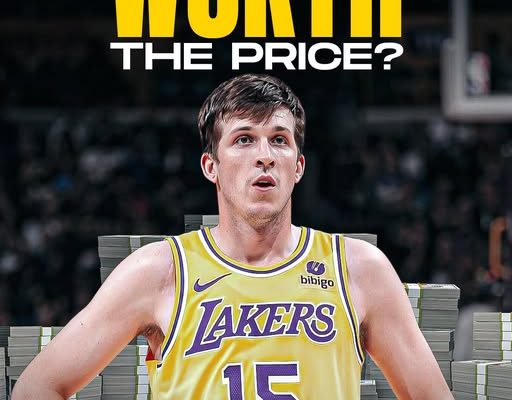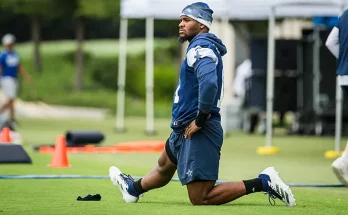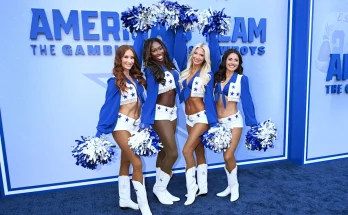The Los Angeles Lakers have once again found themselves in the spotlight, not because of what is happening on the court at this moment, but because of what could unfold in the months ahead. According to multiple reports, one of the team’s key guards is expected to decline his $14.9 million player option this summer, a decision that immediately shifts the focus of Lakers fans, front office executives, and the NBA community at large toward what the future holds for both the player and the franchise. While this decision does not necessarily mean the guard is leaving Los Angeles, it does underscore the complicated dynamics of free agency, the salary cap, and the strategic positioning that defines modern basketball transactions. For the Lakers, who are always under the brightest of lights, every move made by their top contributors carries consequences not only for the roster construction but also for their ability to compete in a Western Conference that continues to grow more competitive year after year.
Declining a player option is often misinterpreted as a signal that the athlete wants out of his current situation, but in reality, it is frequently a sign of financial and professional pragmatism. At $14.9 million, the guard is guaranteed a sizable paycheck should he simply pick up the option. However, the market has shifted, and his recent play suggests he could be in line for a longer-term deal with either more annual value or greater security over multiple years. Teams and players alike understand that the window for maximizing earnings in the NBA can be short. Injuries, dips in performance, or front office changes can dramatically alter a player’s trajectory. Therefore, declining the option is more about control and opportunity than dissatisfaction. It allows the guard to test his market value, listen to other offers, and weigh whether staying in Los Angeles provides the right balance of financial reward, competitive opportunity, and personal satisfaction.
From the Lakers’ perspective, this looming decision creates both risk and opportunity. On one hand, losing a starting-caliber guard without compensation would be a setback for a roster that has consistently struggled to find the right balance between superstar talent and reliable depth. The Lakers, built around the transcendent abilities of LeBron James and Anthony Davis, cannot afford to waste seasons in which both stars remain productive. With LeBron entering the twilight of his legendary career, every offseason becomes more urgent. The guard in question has been a steady contributor, providing scoring punch, perimeter playmaking, and at times, clutch shot-making. His ability to space the floor and take pressure off James and Davis has been invaluable. If he departs outright, Los Angeles will have to scramble in a free agent market that is notoriously thin this upcoming summer.
On the other hand, this decision could also open the door for greater flexibility. Should the Lakers choose not to overpay or extend themselves financially for this player, they could redirect resources toward other needs. Guard play has been a persistent question mark for the team, but so has consistent three-point shooting and defensive versatility on the wing. The Lakers’ front office, led by Rob Pelinka, will have to weigh the cost of retaining this player against the opportunity to perhaps retool the roster in a way that maximizes Davis’ prime years and gives James one last real shot at another championship. That calculus is never simple. A guard who has proven chemistry with the stars and experience in the Lakers system is not easy to replace, and it is always risky to assume that a better fit will be available.
The situation also highlights the realities of today’s NBA financial ecosystem. The salary cap, luxury tax penalties, and new collective bargaining rules make every contract decision more consequential. The Lakers are already a team that hovers near the top of the payroll rankings, and ownership has shown both a willingness to spend and a desire to remain fiscally responsible. Offering this guard a new deal, particularly if it stretches over three or four years at a higher annual salary, would impact the team’s ability to make other moves. Even mid-level signings or trades become harder to execute once a team is over the tax line. Thus, the decision is not only about whether the player is worth the money but also whether committing that money restricts future flexibility that might be necessary to land another impact player down the line.
For the guard himself, the decision will likely come down to weighing financial security with competitive priorities. Los Angeles offers a massive media market, a world-famous franchise, and the opportunity to play alongside two generational stars. Few situations in the NBA are as glamorous or potentially rewarding as being part of the Lakers. At the same time, the pressure is relentless. Fans expect championships, the local media scrutinizes every possession, and the margin for error is razor thin. Some players thrive under those lights, while others find the weight exhausting. Choosing to test free agency does not mean he is ready to walk away, but it does suggest he wants to see whether another franchise might offer both money and a role that is more tailored to his skills.
The Lakers have seen this type of scenario before. Over the years, key contributors have chosen to decline options, test the market, and sometimes return. In some cases, the player comes back at a higher salary, satisfied with the security of a longer-term deal. In other cases, the split becomes permanent, forcing the Lakers to pivot quickly. Because the franchise is constantly tied to rumors about big names, every potential departure also creates speculation about who might come in. Fans immediately begin fantasizing about free agents or trade targets who could fill the void, and the media amplifies those possibilities. The truth, however, is often less glamorous. The Lakers may end up deciding the best move is to simply retain their guard at a higher cost, believing that continuity is worth more than rolling the dice on an uncertain replacement.
One aspect worth considering is how this decision impacts LeBron James. As the face of the team and a vocal figure in roster discussions, LeBron’s preferences often shape front office strategy. If he views this guard as essential to the Lakers’ championship aspirations, that could influence whether the team is willing to go further financially to keep him. On the flip side, LeBron has always emphasized the need for shooting, defense, and high-IQ basketball around him. If the guard is inconsistent in those areas, LeBron may privately push for upgrades elsewhere. The front office must balance those considerations with the long-term reality that eventually the team will need to transition into a new era once James retires. Investing in a guard now could either be seen as a bridge to that future or as a potential overextension that complicates the transition.



